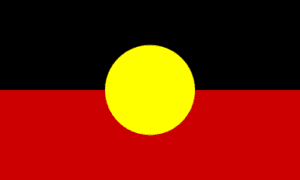Understanding your obligations as an NDIS service provider can be complex, particularly when it comes to industry standards and guidelines. A major guideline that governs NDIS employers and employees is the Social, Community, Home Care and Disability Services Industry Award 2010, otherwise known as the SCHADS Award.
While the SCHADS Award can be overwhelming, it’s crucial you understand it to avoid compliance issues and financial penalties. There’s also been a significant change to the award in 2024.
In this blog, we’ll explain what the SCHADS Awards is all about and look at the latest award updates that’ll help you stay on track for your business.
What are the SCHADS Awards?
The SCHADS Award, otherwise known as the Social, Community, Home Care and Disability Services Industry Award 2010, is an outline of the minimum pay rate and employment standards for roles in the social and community services sector.
Although it’s termed as an ‘award’, most providers think of it as an industry compliance guideline when running their business. This is because the award highlights the industry pay rate and work conditions that are legally enforceable.
Organisations like non-profits, charities, and NDIS providers are required to follow the SCHADS Award guidelines. However, there are certain organisations that aren’t governed by it, such as:
- Aged care organisations
- Leisure and recreation
- Fitness industries
- Healthcare, medical, and dental providers
- Nurses and midwives
Why is the SCHADS Awards important in 2024
Now more than ever, it’s important that you ensure your employees are paid fair wages following the industry guidelines. The NDIS Commission issued over $1 million in fines to 19 providers in 2023, along with 22 infringement notices totalling around 40,000 in 2023.
Service providers are consistently held accountable by the NDIS Commission, and complying with the SCHADS award pay rates and conditions is essential in:
- Avoiding any financial and legal penalties
- Maintaining transparency and fairness in your organisation
- Improving your brand reputation as an ethical and compliant employer
Components of the SCHADS Awards
Under the SCHADS Awards, NDIS service providers must follow certain guidelines regarding employee working conditions and pay rates. Let’s look at some of the important components governing the SCHADS Awards in 2024.
Classification levels
Employees are categorised into levels under the award based on their roles and responsibilities, which determines their minimum wage rates. There are 8 employment levels under the SCHADS awards, and each levels have its own pay point with the minimum wage an employee should receive.
NDIS service providers must notify their employees in writing about their level of employment, and also if they have been reclassified. You will be able to find more information regarding SCHADS award pay rates on the Fair Work Ombudsman website.
Employment Type
The awards classifies employees under 3 different employment types:
- Full-time: An employee working an average of 38 ordinary hours per week
- Part-time: An employee working less than 38 hours a week with a reasonably predictable work schedule
- Casual: An employee without a set of hours each week who typically work irregular schedules
Each employment type has its own set of rules, and you must be familiar with them as a service provider. For example, casual employees must have a 25% salary loading on top of their base salary to compensate for the absence of full-time benefits (i.e. annual leave and redundancy entitlements).
Hours of work
The award states that full-time employees work a maximum of 38 hours per week or an average of 38 hours per week. NDIS service providers can typically arrange employee work as such:
- Weekly: Five-day week with 8-hour shifts per day
- Fortnight: 76 hours over 10 days, with each day not exceeding 8 hours
- Four weeks: 152 hours split over 19 shifts, not exceeding 8 hours.
According to the awards, day workers (workers who don’t work shifts) must work within the ordinary hours of 6 am – 8 pm.
Work on weekends and public holidays
NDIS employees and care workers must be paid a different rate outside their ordinary hours of work. According to the award, all social and community service employees must be paid penalty rates of 1.5 to 2.5 times more than their usual rate for any work performed on weekends and public holidays.
Casual workers also receive a different rate on weekends and public holidays. For example, a casual home care worker would be paid 225% above their ordinary rate if they worked between midnight Saturday and midnight Sunday.
What’s changed under the SCHADS Awards in 2024?
While there haven’t been significant overhauls in 2024, the updated SCHADS award has revised its pay guide.
As of 1 July, the new award pay rates have increased by 3.75%. These new rates apply to all employees from the first full pay on or after 1 July 2024.
This increase is based on the recent changes to the minimum wage made by the Fair Work Commission. As a service provider, it’s crucial for you to stay informed about any changes that might impact your payroll systems.
The latest SCHAD award rates for 2024 can be found on the Australian Services Union website.
Stay on track with SCHADS award changes easily

Understanding and complying with the new pay rates can be time-consuming and stressful. If you’re struggling to keep up in your administration, consider partnering with an NDIS accountant like Oyster Hub.
Oyster Hub helps NDIS service providers streamline their accounting and administration so they can focus on providing a better quality of care. As NDIS providers ourselves, we understand the compliance hurdles within the industry and are here to help you navigate them with ease.
Get in touch with us today for a confidential discussion.




















